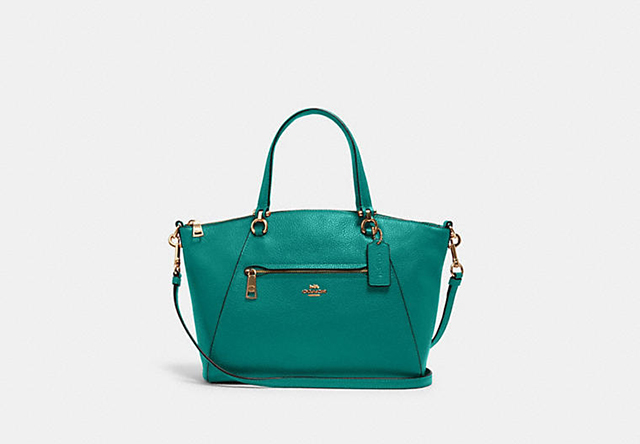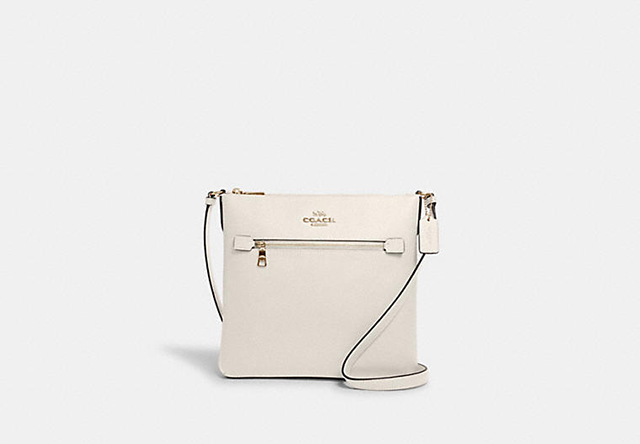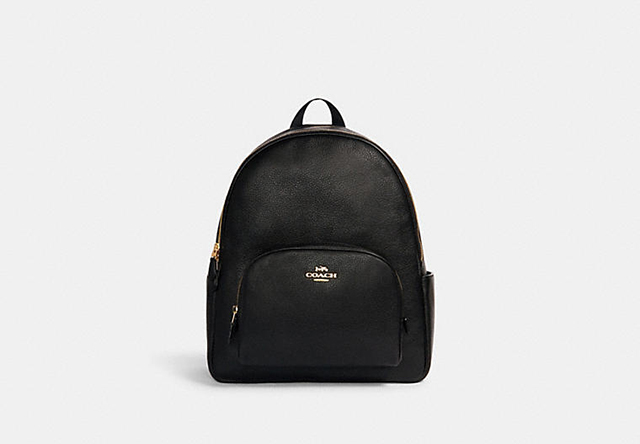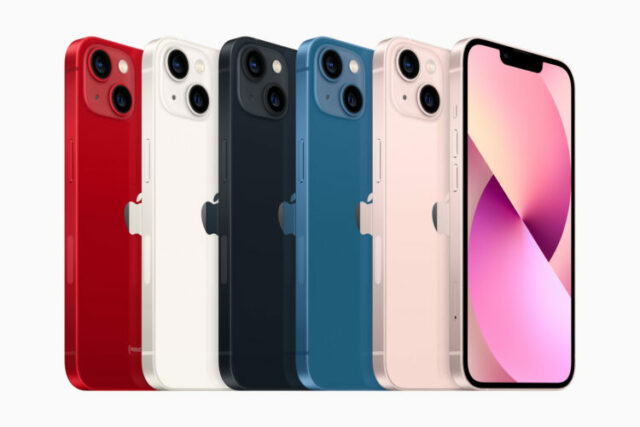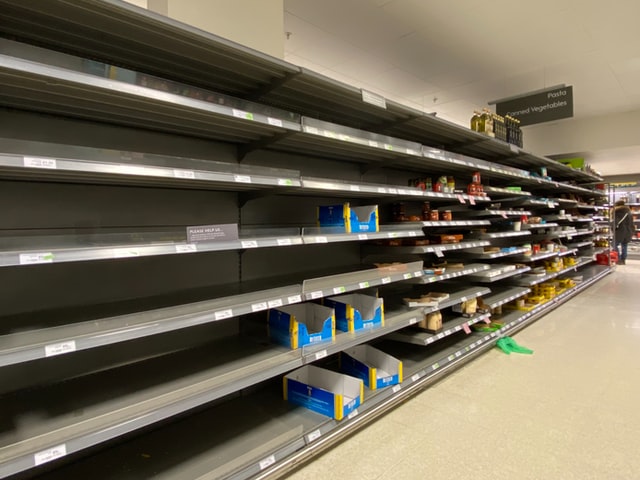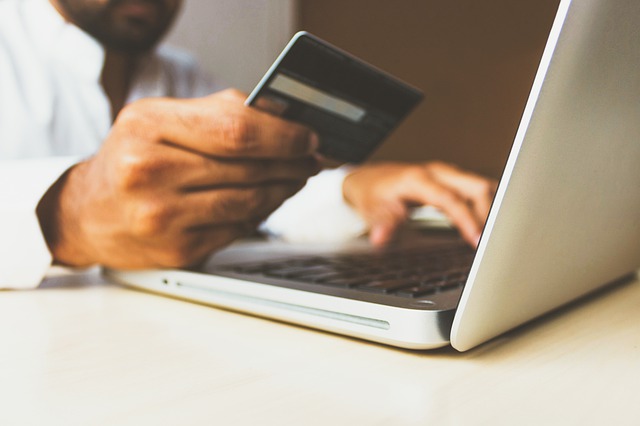Frugal Living Podcast: Financial Freedom Part 1
In this episode of the Frugal Living podcast, host Jim Markus talks with Jamila Souffrant, the creator and host of the Journey to Launch, a podcast about financial freedom and independence. You can listen to the Frugal Living Podcast here, Apple Podcasts, on Spotify, on Amazon, on Anchor.fm, or anywhere you go to find podcasts.
In This Post
- What is Financial Independence?
- What is Journey to Launch?
- Stages in the Journey to Financial Independence
- Read a Transcript from This Episode
- More about the Frugal Living Podcast
What is Financial Independence?
Financial independence can take on almost any shape. It could mean retiring early or traveling the world, or it could even mean continuing to work but being able to choose the kind of work you do. Ultimately, financial independence is about creating a financial situation for yourself that allows you to live the kind of life you want to live rather than just focusing on retirement.
What is Journey to Launch?
As Souffrant explains, Journey to Launch is a podcast she started to chronicle her journey into financial independence. “I was in my early thirties, pregnant with my first son, and had this long commute. It was an hour and a half each way. It just was a wake-up call that I did not want to live this life any longer. Or I wanted to figure out a way to escape the rat race,” More than 200 episodes later, Souffrant is well on her way to achieving her goals.
Stages in the Journey to Financial Independence
Explorer Stage
This stage involves trying to get out of the red every month and making sure you’re not spending more than you’re making. Consider it getting to a stable point.
Cadet Stage
At this stage, you focus on getting out of consumer debt. Souffrant points out that in general, this doesn’t include things like mortgages or high-balance student loans.
Aviator Stage
At this stage, you have more control over how you choose to spend your money, and you’re free to be more aggressive with your savings and investments.
Commander stage
At this stage, you’re not quite ready to walk away from the workforce permanently, but you’re on your way there and could take a break from work if you chose. Souffrant explains that this is a stage that most people are able to achieve.
Captain Stage
Full financial independence.
Read a Transcript from This Episode
Jim (00:01):
This is Frugal Living. Often when I talk to friends about financial freedom, I think of Walden. In the book, Henry David Thoreau says, “I learned this at least by my experiment, that if one advances confidently in the direction of his dreams and endeavors to live the life which he has imagined, he will meet with a success unexpected in common hours. In proportion, as he simplifies his life, the laws of the universe will appear less complex and solitude will not be solitude nor poverty, poverty, nor weakness, weakness. If you’ve built castles in the air, your work need not be lost. That is where they should be. Now put the foundations under them.” Talking to my guests this week, I felt similarly empowered. She’s the founder of Journey to Launch, a podcast all about financial freedom, and she has a great story. Here’s our conversation.
Jamila (01:08):
My name is Jamila Souffrant. I’m the creator and host of the Journey to Launch podcast and the Journey to Launch platform where I share and help people reach financial freedom and independence. And I’m all about living an intentional life and enjoying the journey to time freedom, energy freedom, and financial freedom.
Jim (01:29):
First, congratulations on more than 200 episodes of a pretty exceptional podcast.
Jamila (01:35):
Thank you.
Jim (01:36):
Your podcast specializes in financial freedom. How did you get into this as a topic?
Jamila (01:42):
Yeah, so for me it was a natural progression. Like I find that most people within like the blogging podcasting space in personal finance, like start out by just telling their story first, you know, like sharing their journey, which is what happened for me. I was pregnant with my first son commuting from Brooklyn to New Jersey. So I’m a new Yorker. I was born in Jamaica, which had a lot to do also with my journey, but I was in my early thirties, pregnant with my first son and had this long commute. It was an hour and a half. About one way. It just was a wake-up call that I did not want to live this life any longer. Or I wanted to figure out a way to escape the rat race, escape, this just something that wasn’t for me. And so I started to Google, how do I quit my job? How do I retire early? All these things that maybe a lot of people, maybe some listeners have done when they’re not happy in their job or life and came across this concept called financial independence, where people were working regular nine-to-fives. You know, they weren’t necessarily earning six figures. Some of them were. They were paying off debt, saving, and investing their money. So that over time, depending on how aggressive they could be and how much they can save, they’d be able to quit their corporate jobs and retire early or travel the world, or maybe they’re still working, but they had choice of what they did. And I was like, where has this been all my life? We can do this. At that time, my husband, he’s still a teacher, he’s working still. I was working in corporate America, earning a good salary. And I was like, we can figure out a way to better our finances so that we can reach this level of freedom. And that’s what I did. And I started Journey to Launch as a blog at first to chronicle my personal journey to financial independence.
Jim (03:25):
That’s incredible. It’s such a big statement, the idea that you don’t come from inherited wealth, but there’s still the idea that you can retire early, like before you’re 65 or 70 or 90. It’s such a big statement. How is it possible? You know, it sounds so unbelievable.
Jamila (03:42):
Listen, it is pretty unbelievable. And I always like to say, you know, it depends on what your goals are and your starting point and the assets that you have and your privileges, like we all have unique privileges in our lives. And so I can see how someone for the first time hearing about the financial independence retire early movement, depending on who you’re listening to speak about it, it can definitely feel like this is not for everyone. It’s a pipe dream. It’s not realistic. And I think, you know, part of that is the retire early part because while I had the dream of reaching financial independence, it’s not that I wanted to retire and do nothing. So I think for a lot of people, work is good. You should want to work and bring some sort of contribution into the world, but to choose what you want to do for work, that way you’re bringing your best self to the forefront, to your life every day. And so I think the purpose of financial independence, like that part is the important part. Retiring early is cool. You can choose what you want to do with your life. But I think for most of them, they hear that, they’re just like, so like, “Retire and do what?” You know? And most people that I have actually spoken to that have reached financial independence are still working. They’re actually making more money now because of the skill sets they’ve learned along the way. They reached their goal. But I would say that since I’ve started Journey to Launch as a blog and now I have morphed it into my business. And I’ve changed my views a little bit when I first started about what independence means and what I want my life to be and how I talk about it to other people. And so it’s possible in different ways. And it’s all going to be relative to what you want. So for someone who doesn’t need a lot to live on, you know, I’ve interviewed people who only spend $20,000 a year, which you know, is right up the alley for like a lot of people, right? And for me, that’s not realistic based on my family of five in New York City, not right now.
Jim (05:25):
Yeah, high cost of living. Absolutely.
Jamila (05:26):
But the concept is basically you have enough saved and invested in your investments, retirement accounts, which you can, you creatively access early or outside taxable accounts or sub streams of income through real estate or a business, where you can step away from the workforce. Like you literally don’t have to actively work anymore to sustain your lifestyle and your expenses. So if someone needs less money to live annually, they’re going to need less to save and invest over time. If you need more money, it’s going to take you a longer time to reach that. So that’s the general concept of financial independence.
Jim (06:02):
It’s a huge benefit, the idea that with enough money, your savings can earn its own income. I remember when I entered the working world, a person pulled me aside, he was my mentor in sales. And he was like, “Hey, I can’t really tell anybody else about this, but you’ll care. I just saved a hundred thousand dollars. Like it’s a huge moment in my life.” And I was like, “We do the same thing! How did you do this?” And he talked to me about this. He was like, “Well, here’s what I’m interested in. You know, it’s financial independence, it’s early retirement. It’s having a bunch of money saved that will then have dividends. It will pay me a monthly income on the dividends for these investments.” And that changed my life forever.
Jamila (06:46):
Yeah. I find that just being introduced to the concept shifts can shift your mindset and have you reimagine what life could be. So even if you’re not wanting to retire early, I think everyone is on the path to financial freedom or independence. If you make it to the promised land, as I like to call it, that like big number is one thing. But either way, we’re going to get older. We’re working in jobs we may or may not like, and we want more options. And so you can decide the path you take there. It doesn’t have to be as aggressive as sometimes you hear other people do it, or as frugal as other people do it, you know, but it’s a path you can create all your own. And as you, as you continue on… So I break down financial independence into five kind of stages. I think it makes it more accessible and it shows people how at every stage, they unlock freedom. And so sometimes I think, yes, the complete goal of having all the money you ever need saved up before your retirement age… For most people, first of all, they’re behind on retirement. So that concept is kind of like overwhelming because it was like, “First of all, how do you want me to retire early when I’m not even on track to retire the first time?” Right. And I get that. And so I think it’s important to break down, it in stages where, you know, and I don’t know if you want to talk about it yet, but like my five stages allows you to see kind of how you progress and how at every level you get to unlock freedom that you didn’t have before.
Jim (08:08):
I love that. And I was listening to one of your recent podcast episodes. One of my favorite things about your philosophy on this was that it’s not a sprint. This is something that you can take your time with. And like you just said, it’s your individual journey. Your answer might be different from my answer might be different from someone else’s answer. But I think that leads really naturally into… Could you walk us through the five stages that you’ve identified?
Jamila (08:34):
Yeah. So I’m keeping with my theme Journey to Launch. And I use like a lot of rocket themes in my content. So I say that, you know, the first stage is essentially if you’re just brand new, it’s like stage one, it’s this Explorer stage where you’re just trying to get out of the red every month. You, you know, you want to make sure you at least can for your bills, your expenses, your debt payments, whatever the minimum debt payments are that you’re not going deeper into debt. So it’s like this getting to the stable point, like level one and level two is this Cadet stage I call it, which is like getting out of debt, consumer debt. So that’s your credit cards, your car note, any debt you want to include in there again, and you can actually tailor these differently. I typically don’t include like a mortgage or a high-balance student loan debt or low interest debt. So debt that you intentionally want to pay off is like stage two, that’s that Cadet stage, and then stage three is what I call the Aviator stage. So once you are done with consumer debt or the debt that you want to pay off, now you’re in this unique position where all the income that you have coming in, you literally now can control where it goes outside of your living expenses. So you can save and invest more aggressively. So it’s kind of like that squirrel stage where you’re like building up your assets, it’s an Aviator stage. And then the next stage, stage four, is what I call the Commander stage. So that’s the stage I’m in. So I’m not completely financially independent just yet. We are well on our way, but the Commander stage, level four, is a stage that I do think most people can get to, if not everyone. And that’s that stage where you may not have enough money to never work again, you know, you may still have to bring in an income, but because you have gotten to a place where, you know, your most part is… You’re consumer debt free. You’re on top of your finances. You’re investing in saving. You have more freedom and options in your life. So you could choose to take a break from the workforce. For whatever reason, you could choose to travel, start a business, you can have work options, like flexibility, meaning you can choose the things you do. And I think that is a wonderful stage to be in. I mean, all these stages going through them are wonderful, because you can’t reach complete financial independence, which is stage five, the Captain stage, without going through these other stages. And like you said, it is a marathon. This is not something that happens overnight. There’s so many changes internally, externally, that needs to be made for you to get like in a better place. And so, you know, for people and depending on your income, your expenses, your culture, where you live, all these things matter or are impacted by this. So again, I think breaking it down for me, at least. And from what I hear, when other people hear it, it feels like, OK, I can work with the stages first. It’s like you telling me that I need a million dollars, right? Like that seems so far away. Like, what do I need to do in the meantime to like, make these stages or steps up, go by faster, or at least in a way that feels good.
Jim (11:23):
I love that. You hear early retirement and you think, like you said, “I’m not even on track for normal retirement. How would I ever retire early?” I love that idea of, well, it doesn’t, don’t start with that goal. Start with a more reasonable goal. Stop going down… First, in many cases, identifying where you’re losing income, where you’re losing monthly payments. It snowballs into being unmanageable very quickly, especially with credit card debt, high interest rate debts. They add up very quickly, and stopping that bleed first is a great place to start. I love that.
Jamila (12:01):
It all starts, no matter whatever level you feel like you are in, starts from awareness of where you currently are. You know, a lot of times you want to go straight to the action. So, you know, I think income and expenses, those are your two driving forces and being able to reach your goals, you can either earn more or spend less or be more optimized with your spending. And the difference between that creates like this gap that you can then use to reach whatever goal you want. So you can do both. You don’t have to like focus on one or the other. You can choose what you want to do based on your interests. And I just think for most people, they want to go straight to earning more or spending less, which is great, but what drives that are your habits, is your mindset. There’s so much internal work that needs to be done. And so simple awareness of where you are is important, because then you can start to be honest with yourself on what you can actually change and be, like you said, for some people who are not earning enough, who have, you know, are in poverty or who need more help based on what systemic issues or racism and all these other things that are baked into our society. That may be a different conversation. But I do truly believe that no matter where you currently are, there’s some room for improvement, right? Like you don’t have to necessarily say, OK, in a year I’m going to, you know, have a million dollars, but it could be, OK, well in a year I want to like stick to a budget. Like I want to find a way that works for me in spending, that feels good. I want to negotiate a raise or look for another job. There’s so many smaller steps you need to do first that help with the bigger goal. And I think everyone can start to work at something in their lives to do that.
Jim (13:38):
Again, this goes back to evaluating your specific situation and understanding that every situation can be improved. The question is, where do you want to start?
Jamila (13:47):
The biggest mistake people make is feeling like they’re the only one who doesn’t get it right. Or is confused by concepts. And it’s overwhelming for, I mean, even me who talks about money, who now has a career in this field. Like I still don’t necessarily like doing my budget, speaking of budgets, like I need to do my budget today. Right? Like I think, so you feel like maybe if it’s not inherently something you enjoy or want to do or comes easy, that it’s not meant for you, you’re not quote, unquote smart enough. And like, I would tell you that, like, I know other people in this space, in the personal finance space who are experts or educators and they still struggle and so for people to think like, it’s just me. So there’s shame around speaking about like, the issues is a mistake because everyone goes through it. And so the more we speak about it, the more we can normalize it.
Jim (14:40):
Yeah, there’s a huge community out there. And you’ve mentioned it a couple times, financial independence, retire early, it’s FIRE. FIRE is a movement, Google it. There’s so much out there.
Jamila (14:51):
But be careful, you can go down some rabbit holes about like the different types of people and leaders in this space, which are great. And here’s the beautiful thing about the internet and the fact that I think personal finance has become more democratic in a way, where anyone can start a blog or podcast, is that you have to find the voice or the people that you resonate with. Not everyone is for everyone, right? Not every concept will resonate with you. You might know, there’s some people who find some people in this space a little bit elitist and they don’t take into account the full picture of society, which I sometimes agree with. And there are some people who, you know, want the more aggressive approach and it’s just like, no, don’t spend any money. Right. And I think that there’s a spectrum now, especially now that we are starting to see more blogs and podcasts of people talking about it in a different way that I hope at least you could find one person that you relate to on the, in the movement or on the journey.
Jim (15:41):
Who resonates most with you? Do you have one or two names or podcasts or books that you really got started with?
Jamila (15:47):
So I would say that like I have one foot in the financial FIRE space and one foot in the personal finance space, because when I first started, you know… Yeah, it was about saving and investing as much as possible to shorten the timeline of when I was working and then starting Journey to Launch and seeing the impact and how this actually now has become a business for me. You know, I walked away from my corporate job. So it wasn’t about the money anymore. Like before it was, how fast can I reach this goal? And so my shift has been, I think most people should be working to enjoy their life now, not waiting, just like, you know, if someone’s working in corporate America and they hate their job for the next 20 years… To me, that’s no different than if you’re on this financial independence, retire early movement, and you’re just like unhappy and like, you’re not spending anything or you’re working too hard, too many hours, and it’s just, you don’t have time for family and friends and enjoying your life. It’s the same, to me, issue. And so I say all of that to say, like I walked away from my job to do this business, which at the time wasn’t earning nearly anything to build it up because I wanted more time and flexibility and to love what I did. And so when I talk about, or think about people in this space, it’s not necessarily in the FIRE space, it’s just like in general, like lifestyle design, people who talk more about the quality of life and enjoying it, but in a responsible way, people who are not too judgmental about what other people are doing with their money. Like that’s the kind of people I like, but I would say another, a couple that I really like are rich & REGULAR. They’re in Atlanta. They have a blog where they talk about financial independence. And then just in general, I just, I am able to pick and choose people from different areas in just personal development and finance where I relate to, or I think are good that helped me.
Jim (17:28):
That makes total sense. And you bring up some interesting points. A lot of people will get into this movement and then they’ll really get into this movement. It’s not just, I’m going to start saving and investing. It’s… And now I’m not going to spend money on anything. I’m going to do everything myself. I’m going to, you know, craft my life around this. And I think that, you know, those are compelling stories, but it’s certainly not for everyone. And there’s a huge danger of getting scared out of this potentially reasonable goal, because the people you hear about, the people who are doing a lot of these, you know, national interviews have these really aggressive lifestyles that are gonna be very difficult for most people to embrace.
Jamila (18:12):
Yeah, I think that also can be a turnoff because I don’t consider myself like I’m frugal. I know you have a lot of your listeners who want to save money. I mean, I want to save money. I look for deals all the time too, but there are certain areas in my life where are not as frugal as others. And so I think most people who are new to finance, personal finance or this lifestyle, like to them, like if you come in and like tell people, like now you can’t spend any money, like that’s not appealing, right? I think you have to talk about it in a way that shows more people what they’re gaining from it. If you enjoy cutting coupons and being super frugal, like I have a friend, like she literally enjoys like driving around to different grocery stores to save like dollars. And she enjoys that. Like, it’s fun for her. And I love that. I’m just, I’m always teasing her like, you know, and that for me, like, I don’t enjoy that. I don’t want to do that. So again, I think everyone has an individual like, dislike. You know, I think we all can push our limits a bit in a fun way to like, just try on different hats and lifestyles. But overall, it’s a very individualistic journey.
Jim (19:17):
If you want to try on a couple of hats in this community, if you want to try a couple of different things, you know, that might lead to different places, what are a few options for someone just getting started? What are a few ways they might want to consider engaging in the financial independence movement?
Jamila (19:31):
Yeah, so I would start with like where you currently are and doing an assessment of where you are in your earning stage of life, your work stage, and if you actually enjoy your job, you know, here’s the other thing I actually… Working for someone else is not a bad thing. Not everyone needs to become an entrepreneur, by the way. Speaking from experience, and now being a full-time entrepreneur, if you have a job that you love, you are blessed, that pays you a paycheck. Like that’s a blessing. And so there’s nothing wrong with that. And so I think if you are working for a company and you actually enjoy it, you know, it’s not, so it’s not to say like, oh, if you enjoy your job, like then who cares about financial independence? Because again, who knows where you’ll be in five or 10 years, maybe you’ll want to do something different. You want to have those options to switch careers or take a break. So that’s why you should be working towards it. But I think, look at currently where you are in your income, right? And are you leaving money on the table? Meaning, you know, you’re not negotiating a salary. There’s another job you may enjoy more. Are there side hustles you can do that you can earn money? Or are there things you could just do without earning money but add to your skill sets that then will help earn you money, even though you’re not thinking about it that way? So I would look at then, first, like income side of things, like, what can you do if you don’t feel like you’re earning enough or earning what you want, to earn more, because then you can pursue it from an increasing income standpoint. What can I, one, do that’s going to move the needle the most with, I don’t want to say the least amount of energy, but sometimes you want to start with, OK, what’s not going to be too much of a hassle? And then, OK, what are the things I have to work on a bit more to do to help move the needle for my goals?
Jim (21:08):
You were listening to part one of a two-part interview. Frugal Living is brought to you by Brad’s Deals. Special thanks to Jamila Souffrant, Sydney Smith, and H. Borkowski. I’m Jim Markus. Thanks for listening.
More about the Frugal Living Podcast
This episode was sponsored by Charlotte’s Web, and we scored a discount for our listeners. Use our code FRUGALPODCAST at Charlotte’s Web for 15% off sitewide. Some exclusions apply.
To hear more from Jamila Souffrant about her blog and financial independence, check out the latest episode of Frugal Living. Frugal Living is a podcast for smart consumers. How do you spend less and get more? The show, sponsored by Brad’s Deals, features interviews, stories, tips, and tricks. Jim Markus hosts season three, out now.
Subscribe Now on Spotify
What did you think of this week’s episode? Let us know in the comments!
The post Frugal Living Podcast: Financial Freedom Part 1 appeared first on The Brad's Deals Blog.

